Maruti Suzuki eVX Electric SUV Concept Interior Revealed Ahead of Tokyo Mobility Show
The exterior of the Maruti Suzuki eVX concept car was revealed during the 2023 Indian Auto Expo. In a recent development, the SUV's interior was set to be showcased by the firm at the upcoming Tokyo Motor Show 2023. However, the images of the cabin have already surfaced online ahead of the event.

At the Indian Auto Expo this year, Maruti Suzuki unveiled the eVX, an all-electric concept SUV. Notably, the eVX is the Japanese carmaker's first electric SUV, developed in partnership with Toyota and is scheduled to arrive in India in 2025. According to recent reports, the manufacturer will showcase an improved version of this SUV later this month at the Tokyo Motor Show 2023, slated to take place from October 26 to November 05. After the concept's exterior was unveiled in India back in January, the interior of the SUV was set to be revealed by the firm at the forthcoming auto show in Japan. However, the images of the cabin have already surfaced online ahead of the event. For those unaware, the eVX is built on a brand-new, specialised 40PL Skateboard EV platform and measures 4,300mm in length, 1,800mm in width, and 1,600mm in height. Along with the eVX, the company will be displaying the new Swift and the India-made WagonR CBG. Here's all that we know about the eVX concept so far.
Also Read: Maruti Suzuki Grand Vitara SUV Becomes Fastest in Segment to Clock 1 Lakh Unit Sales in India
Maruti Suzuki eVX: Interior Details
The eVX's dashboard can be seen in the image, and it is instantly apparent that this is the most cutting-edge-looking interior Maruti Suzuki has ever provided for a vehicle. The dashboard of the eVX is its interior's primary focal point because it is fairly straightforward and minimalistic. There are hardly any buttons on this stylish dashboard. The images posted depict a dual-tone cabin with the centre dashboard being dominated by white. The air conditioning vents are perhaps another one of this interior's most distinctive design features. As opposed to regular small vents, they have a completely unique look. They are vertically arranged and almost appear to wrap around the dashboard from top to bottom.
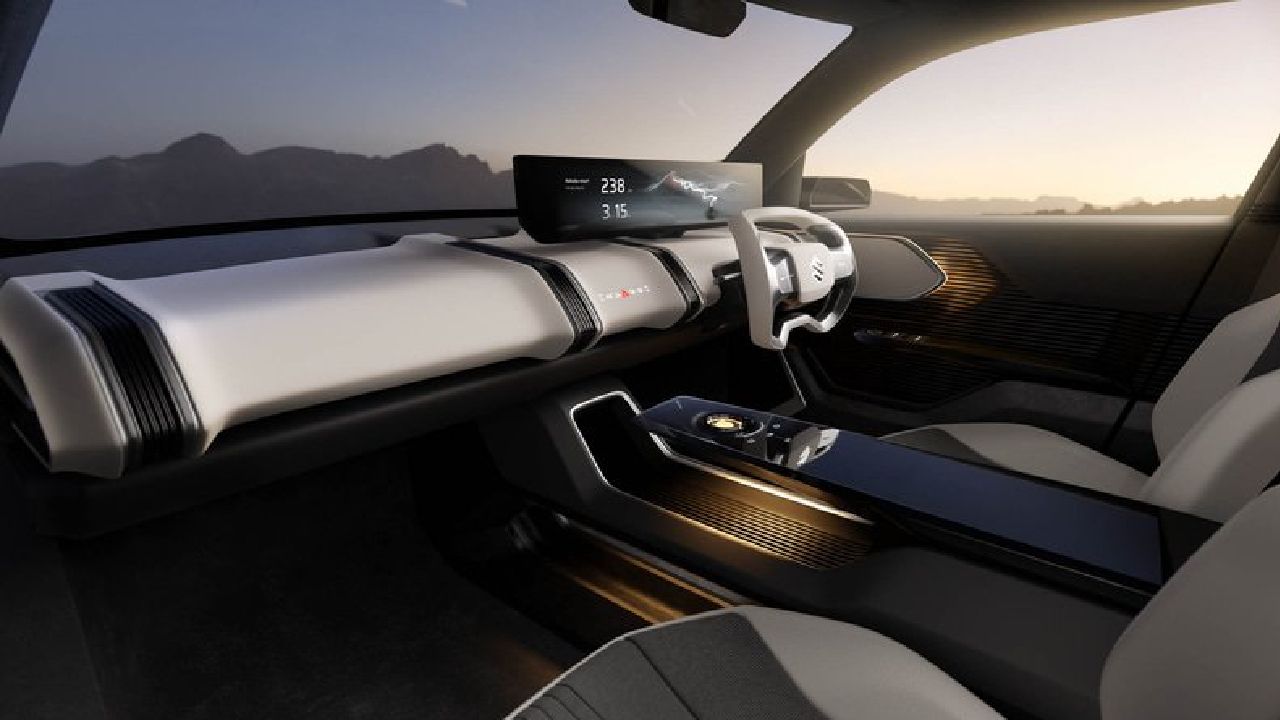
As we've already observed, there are no visible physical buttons for the air conditioning system, even in the centre of the dash. This most likely suggests that a touchscreen will be used to operate the air conditioning system. Furthermore, the manufacturer has finally adapted to current trends and features a sizable single horizontal touchscreen panel on top of the dashboard. The infotainment system and digital instrument gauge cluster will both be located on this single screen. The steering wheel's interesting design is the next major highlight of this cabin. It lacks buttons as well, much like the remaining portion of the interior, and if it did, they would very certainly be capacitive touch-based.
When it comes to the vehicle's centre console, it has a floating-style design. A single rotary dial in the center of this console probably controls the massive touchscreen. Apart from that, the console's side profile and the door panels also have some lengthy horizontal lines that ambient lighting has drawn attention to. The door panels are equally plain and elegantly designed as the dashboard and the interior's general layout.
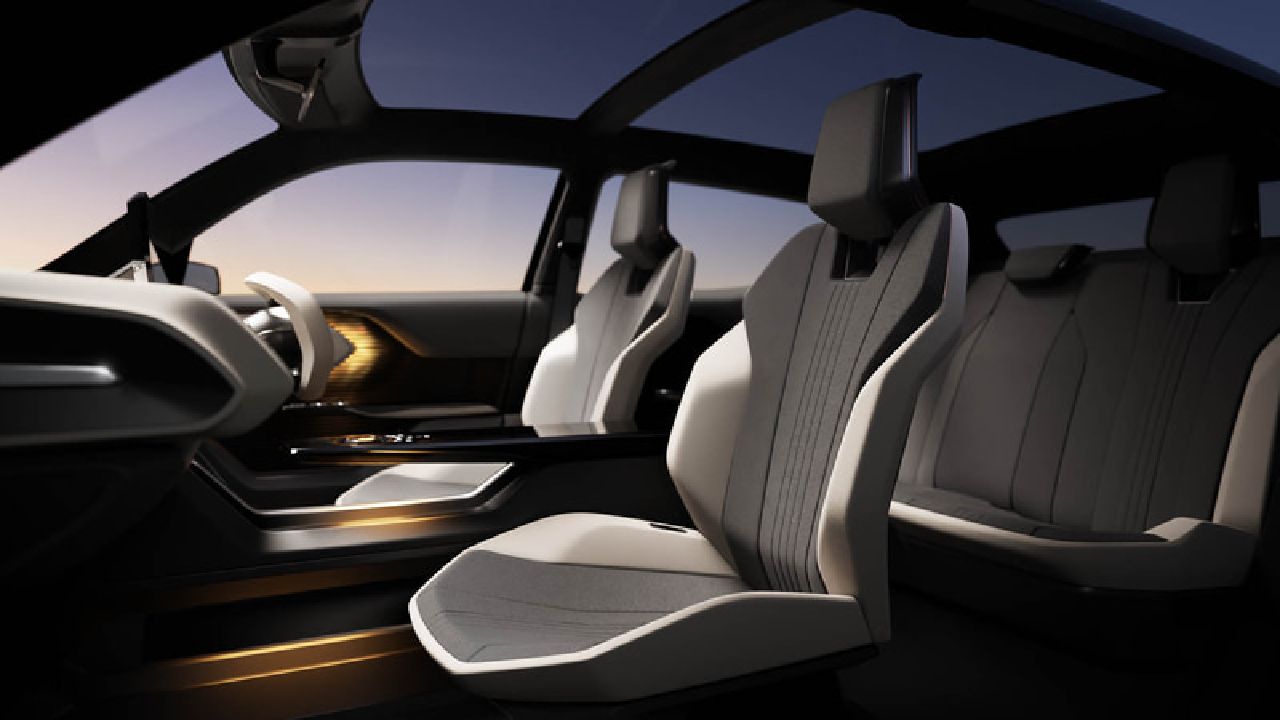
The SUV's striking seat design is the next interior feature. The dual-tone colour pattern of the bucket-style seats makes them seem quite elegant overall. They will include prominently curved headrests and large, supporting side bolsters. On the other hand, the back seats appear to be identical to the company's standard front seats for cars.
Maruti Suzuki eVX: Battery and Range
As previously stated, the eVX is the company's first-ever electric SUV. According to the firm, it will be fitted with an electric drivetrain that will have an astounding range of 500-kilometre. The 60kWh battery in the concept eVX displayed at this year's Indian Auto Expo had a 550-kilometre range. Maruti Suzuki is also anticipated to release a base model with a respectable 400-kilometre driving range but a somewhat smaller 48kWh battery.
Also Read: Tata Nexon vs Maruti Suzuki Brezza Spec Comparison: Which SUV Should You Buy?
Maruti Suzuki eVX: Expected Price and Market Rivals
Maruti Suzuki is anticipated to bring the eVX to India by 2025, with a starting ex-showroom price tag of approximately Rs 25 lakh. As a high-end alternative to the Mahindra XUV400 and the Tata Nexon EV, it will compete with models like the MG ZS EV as well as Hyundai Kona Electric.


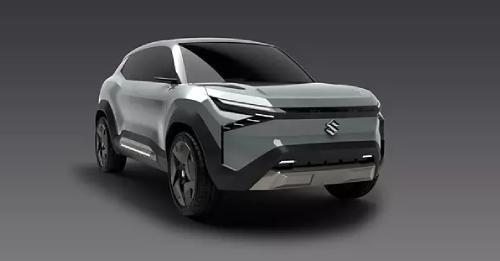
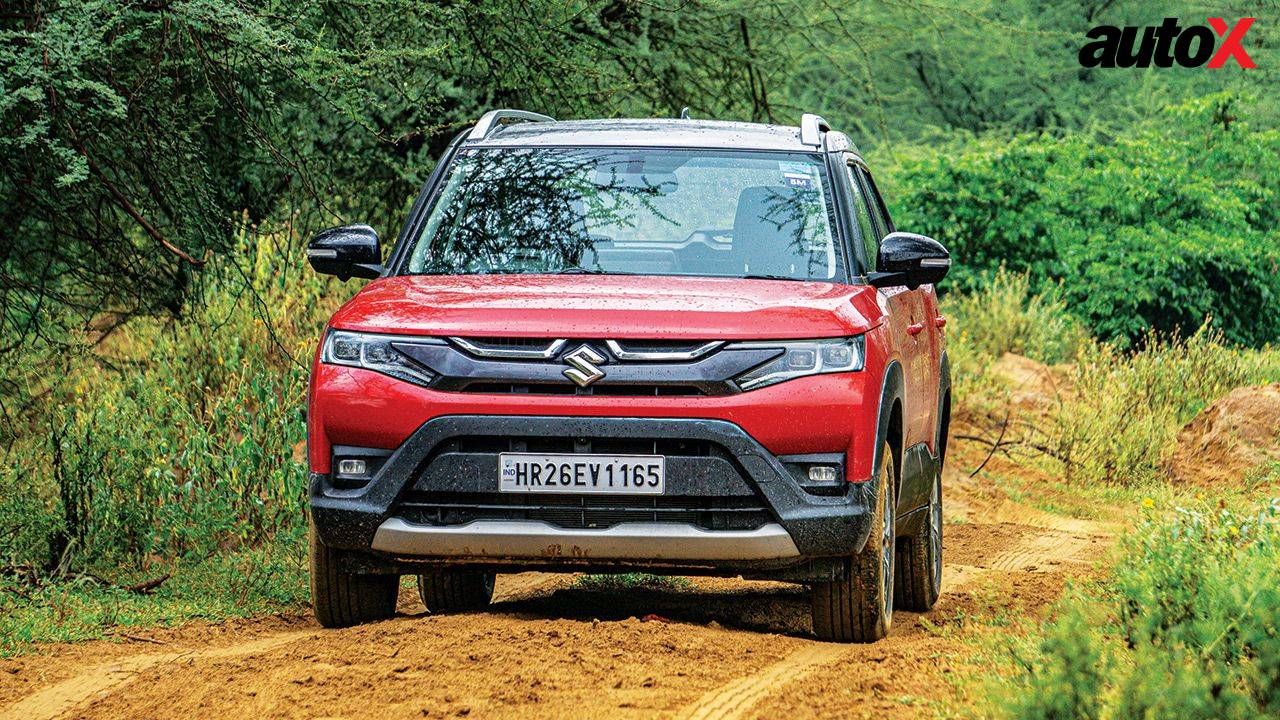

.webp)
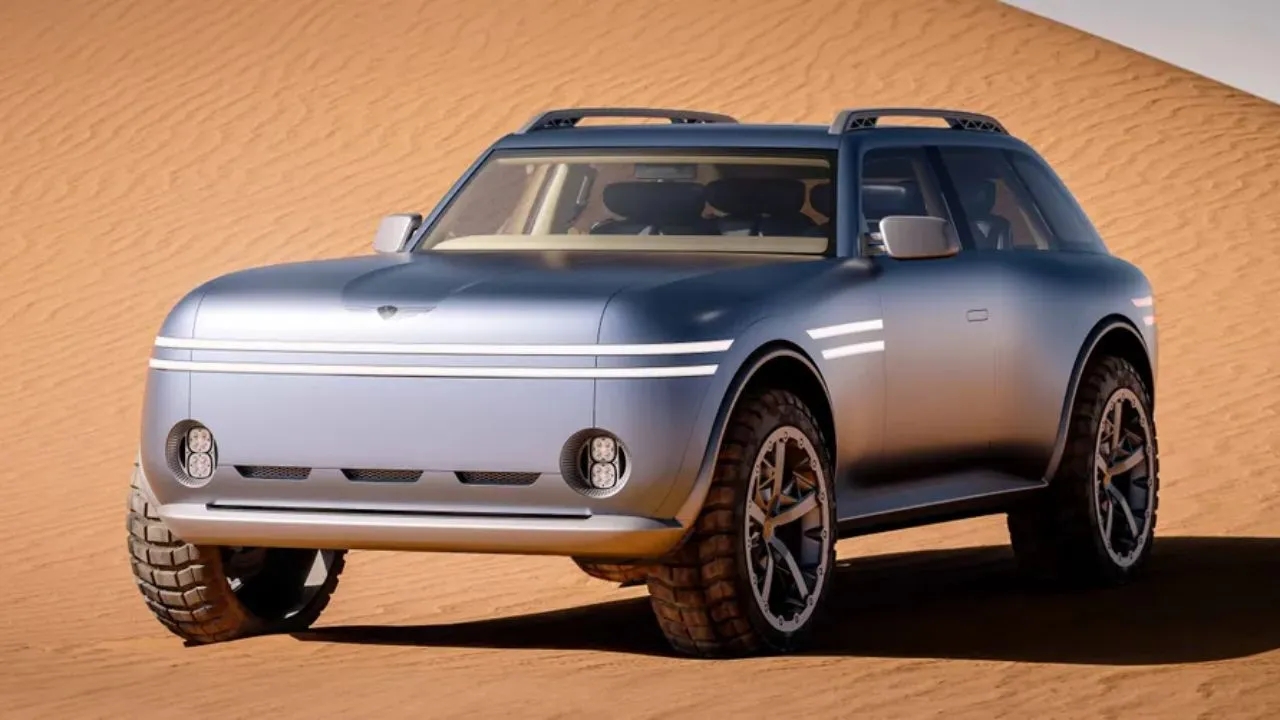
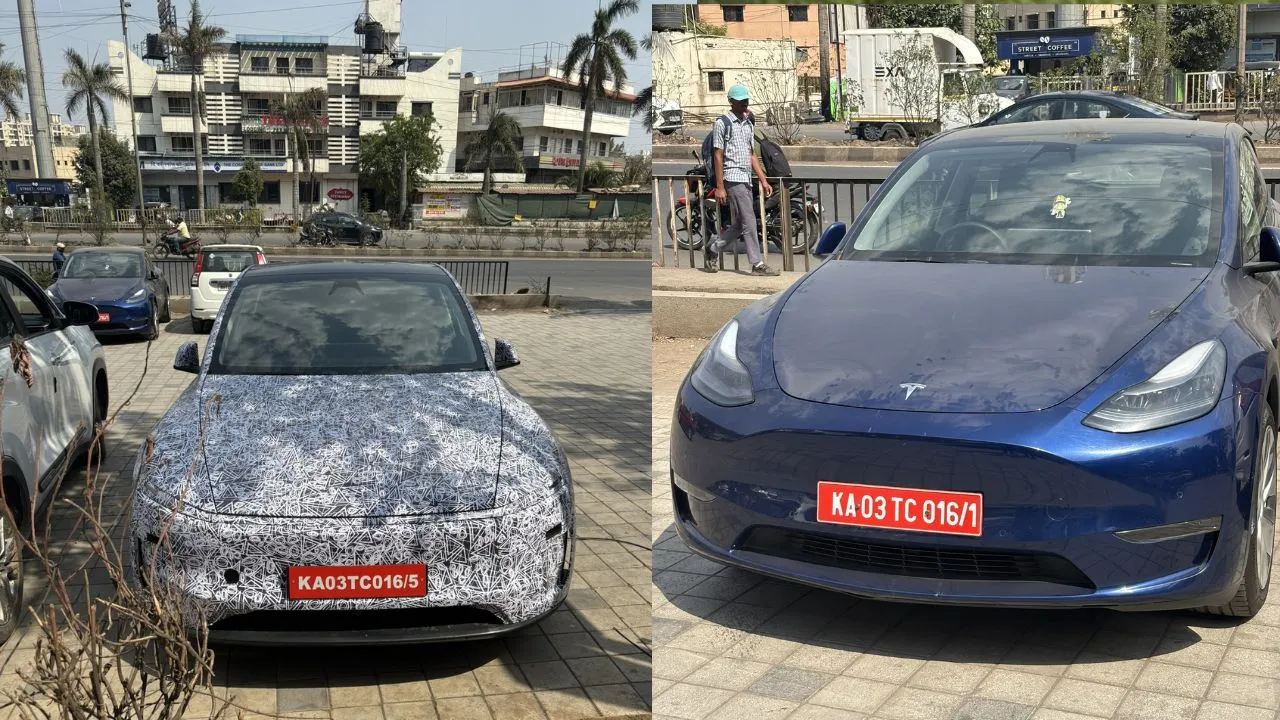
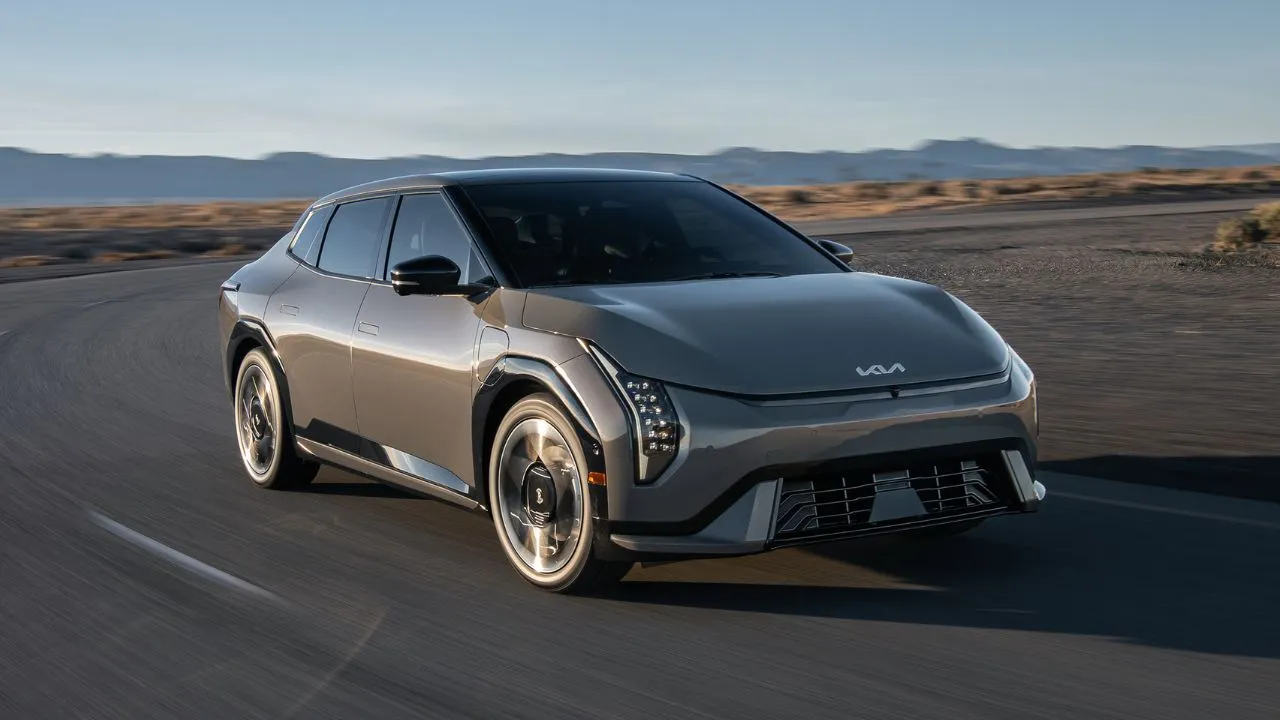
Write your Comment on